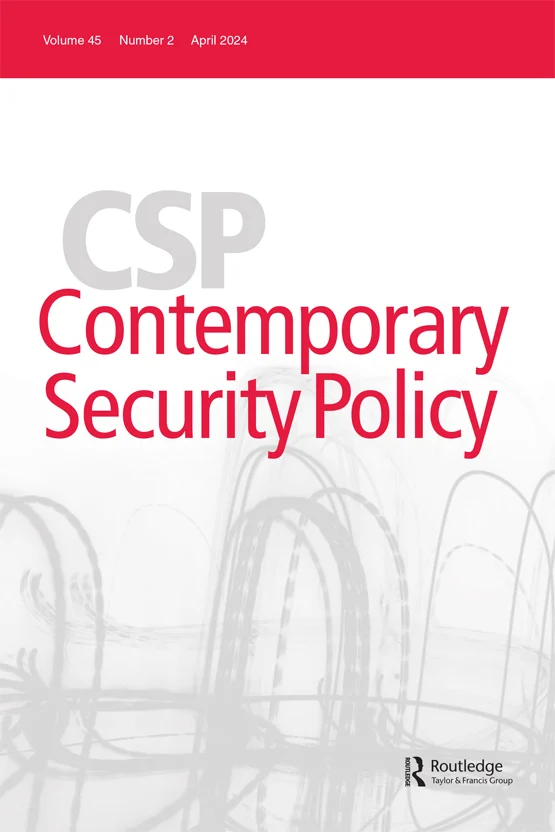价值观、权利和不断变化的利益:欧盟对乌克兰战争的反应和保护欧洲人的责任
IF 5
1区 社会学
Q1 INTERNATIONAL RELATIONS
引用次数: 25
摘要
在俄罗斯入侵乌克兰之后,欧盟做出了数十项决定,由于成员国之间的分歧,在这些决定上达成一致是迄今为止难以想象的。基于规范的方法被用来更好地理解欧盟出人意料地就两项关键措施达成一致:对俄罗斯的一揽子制裁,以及允许乌克兰国民在欧盟生活和工作的决定。成员国在保护乌克兰平民免遭暴行罪和战争罪侵害的责任上的一致发挥了重要作用,包括应对(制裁)和预防(难民保护)的义务。基于权利规范的道德义务所产生的欧盟行动与基于价值观的规范密切相关,这些规范涉及欧盟的团结、认同和对-à-vis欧洲同胞的道德义务。这些初步调查结果很重要,因为它们表明,基于权利的规范和基于价值观的规范之间存在不可分割的联系,从而引发对欧盟外交政策的影响。本文章由计算机程序翻译,如有差异,请以英文原文为准。
Values, rights, and changing interests: The EU’s response to the war against Ukraine and the responsibility to protect Europeans
ABSTRACT Following Russia’s invasion of Ukraine, the EU has taken dozens of decisions, on which agreement had hitherto been unthinkable due to differences between member states. A norms-based approach is used to better understand the EU’s unexpected agreement on two key measures: the sanctions packages against Russia and the decision to allow Ukrainian nationals the right to live and work in the EU. Congruence among member states over the responsibility to protect Ukrainian civilians from atrocity crimes and war crimes played an important role, including the obligations to react (sanctions) and to prevent (refugee protection). EU actions arising from moral obligations based on rights-based norms have been linked closely to values-based norms pertaining to EU solidarity, identity, and ethical obligations vis-à-vis fellow Europeans. These preliminary findings matter as they suggest an inextricable linkage between rights-based norms and values-based norms to trigger effects on EU foreign policy.
求助全文
通过发布文献求助,成功后即可免费获取论文全文。
去求助
来源期刊

Contemporary Security Policy
Multiple-
CiteScore
14.60
自引率
6.80%
发文量
22
期刊介绍:
One of the oldest peer-reviewed journals in international conflict and security, Contemporary Security Policy promotes theoretically-based research on policy problems of armed conflict, intervention and conflict resolution. Since it first appeared in 1980, CSP has established its unique place as a meeting ground for research at the nexus of theory and policy.
Spanning the gap between academic and policy approaches, CSP offers policy analysts a place to pursue fundamental issues, and academic writers a venue for addressing policy. Major fields of concern include:
War and armed conflict
Peacekeeping
Conflict resolution
Arms control and disarmament
Defense policy
Strategic culture
International institutions.
CSP is committed to a broad range of intellectual perspectives. Articles promote new analytical approaches, iconoclastic interpretations and previously overlooked perspectives. Its pages encourage novel contributions and outlooks, not particular methodologies or policy goals. Its geographical scope is worldwide and includes security challenges in Europe, Africa, the Middle-East and Asia. Authors are encouraged to examine established priorities in innovative ways and to apply traditional methods to new problems.
 求助内容:
求助内容: 应助结果提醒方式:
应助结果提醒方式:


